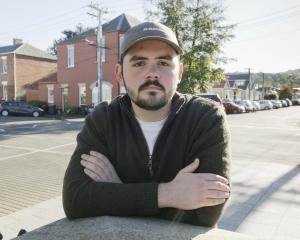
The announcement of the accolade came last month, six months after the start of a pilot programme aimed at increasing the engagement of offenders between the age of 17 and 24 on community-work sentences.
Of the 46,000 offenders managed by probation every year, more than 6700 were under 20, Corrections said, and they were regarded as the most difficult to engage.
Corrections Dunedin service manager Cathryn Elsworth assembled a team including community-work supervisors, probation officers and senior staffers, aimed at getting young people to complete their community-work terms.
Rather than impose a plan on the offenders, they asked the young people what they wanted.
Ms Elsworth said they consulted on every aspect of the pilot programme, even down to the lunches.
Which culinary classics were a hit? Hamburgers, hot dogs and sausage stir fry, apparently.
If offenders are sentenced to community work and do not complete their hours within a set timeframe, they may be charged with a breach and brought back before the court.
That can incur more serious penalties or, potentially, more community work.
Ms Elsworth said young people could quickly become disillusioned and trapped in a destructive cycle.
Many were dealing with alcohol and drug addiction issues, as well as undiagnosed mental-health problems such as depression and anxiety.
``We are trying to get as many people out of the system at this age as we can, and get them on to a better path,'' she said.
By law, offenders can serve 20% of their community-work sentence learning ``living skills''.
Ms Elsworth said the young offenders involved in the pilot had toured a scaffolding company, spoken to sexual-health services and completed driving courses, among other things.
But one that went down particularly well was a visit to Forsyth Barr Stadium to watch the Highlanders' captain's run recently, organised by probation officer Paul Miller.
``The rugby opportunity engaged the youth ... and showed them that you don't have to have the perfect life to achieve your goals; that hard work and determination can go a long way,'' he said.
Ms Elsworth said the programme had doubled in size since it started in February - it now had more than 20 youths involved - and its success was testament to the passion of staff.
``We have got a lot of people in Dunedin who are really motivated to work with youth, so basically it was getting a group together and trying something different,'' she said.
``We're not babying [the offenders], we're trying to open up opportunities for them. What we've done before hasn't worked. We don't know if this is going to work ... but what we are seeing is we're getting more people through the door.''
Corrections has said the project may be rolled out nationally and although Ms Elsworth said it was too soon, it would be ``amazing'' if it happened.












